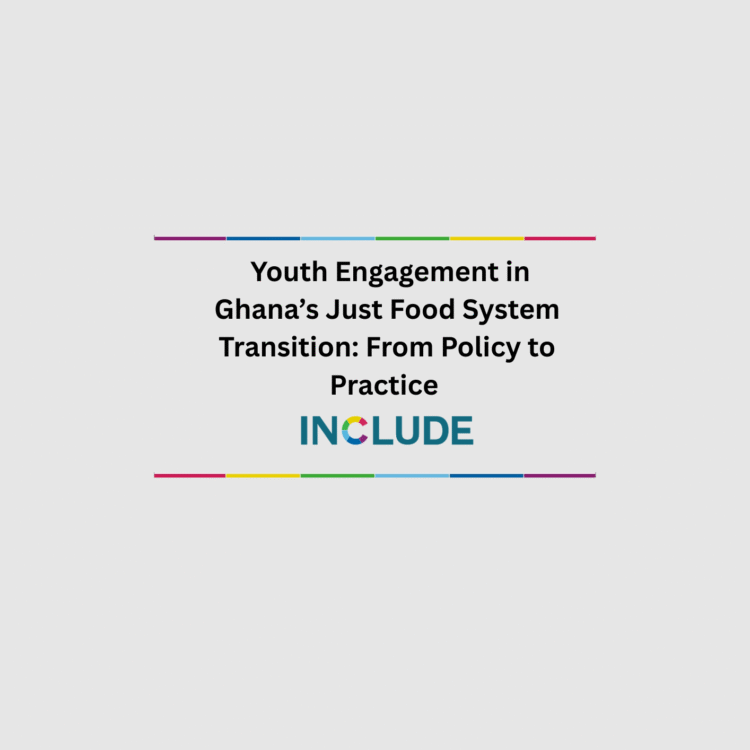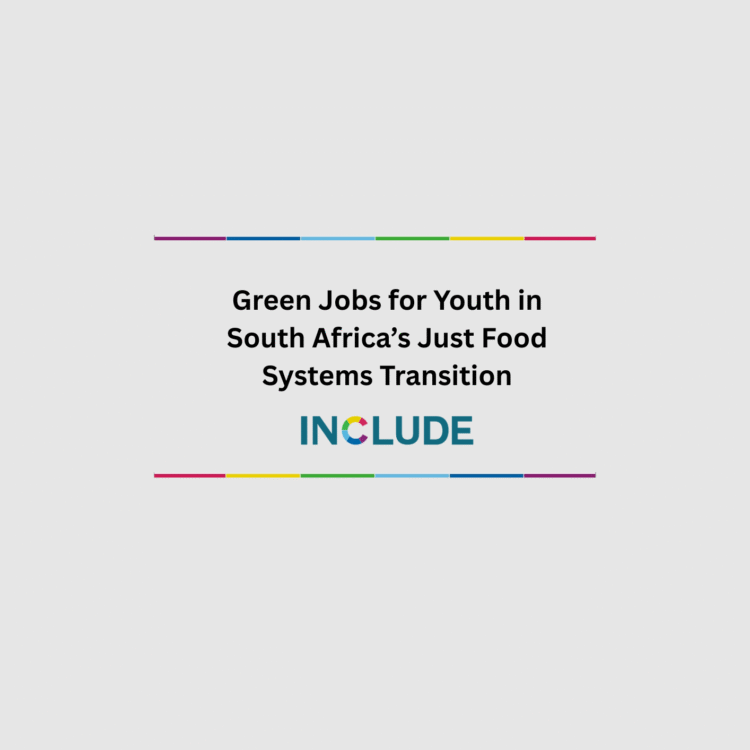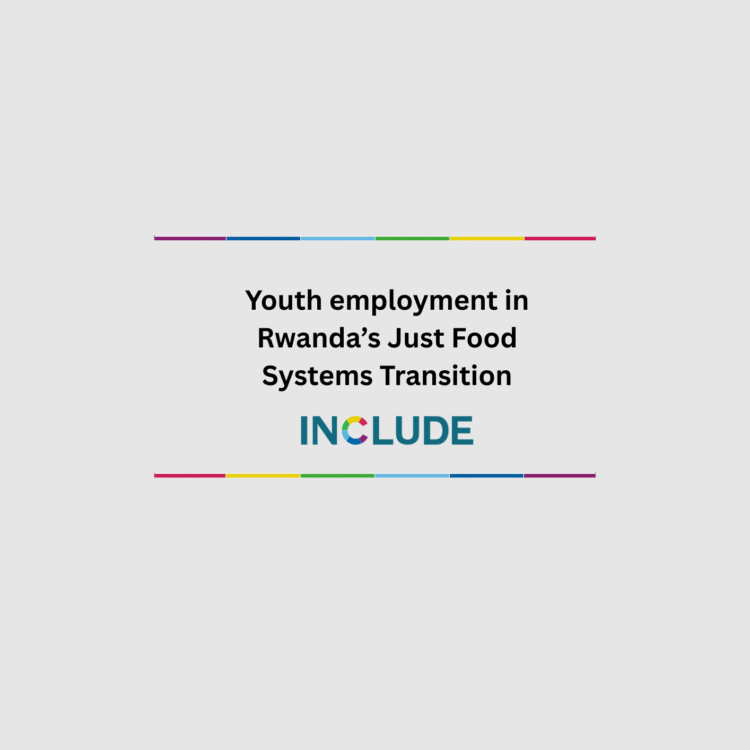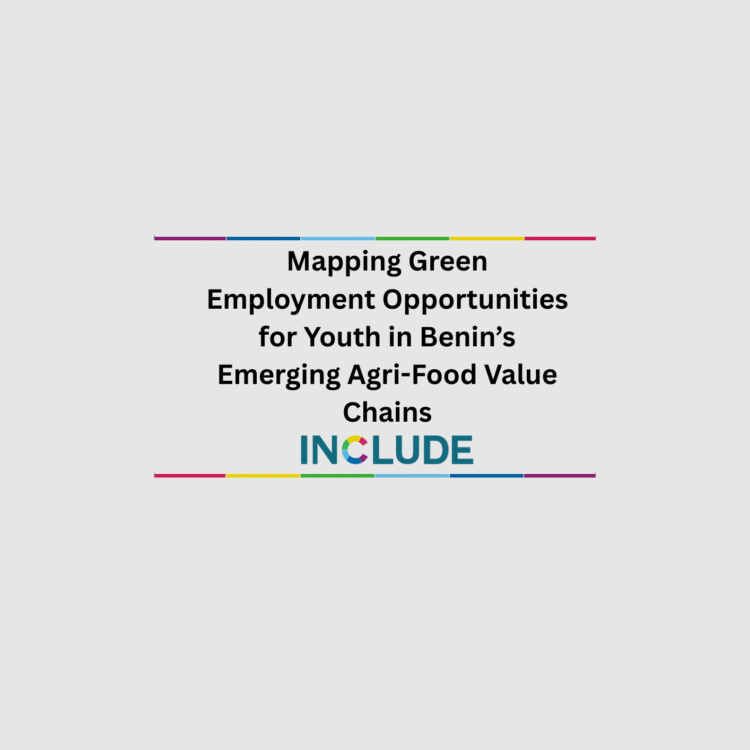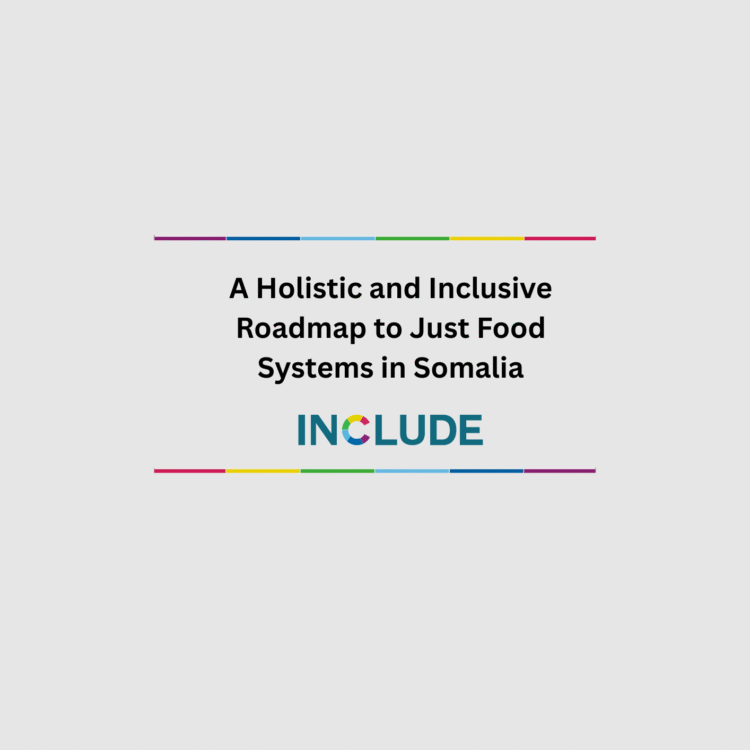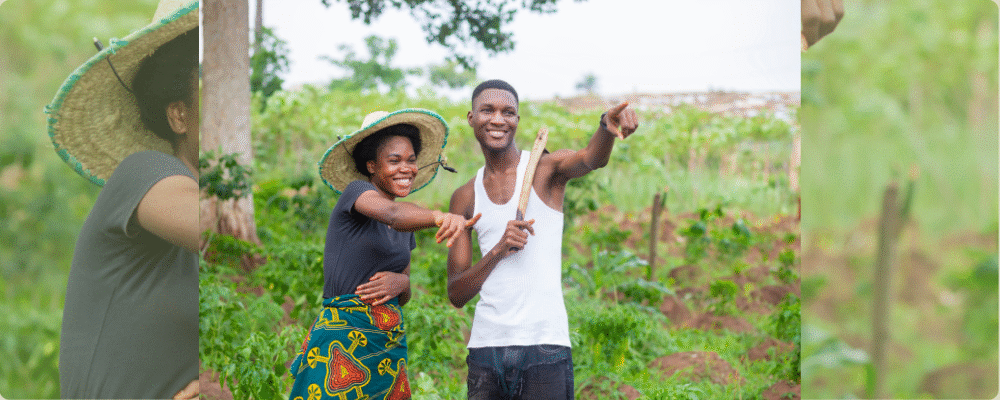
Earlier this year, INCLUDE launched the research programme Youth in Just Food Systems Transitions, exploring how to transform Africa’s food systems in ways that are both environmentally sustainable and socially just.The programme builds on a strong conceptual foundation applying inclusive development, political economy, and food systems analysis as key lenses to understand how transitions can create green and decent jobs for young people, while ensuring no one is left behind. Central to the programme’s framing are the four justice dimensions—distributive, procedural, recognition, and restorative—that guide the research on what a “just” transition means in practice.
We are now at the programme’s midpoint. In late August, INCLUDE hosted a mid-term progress meeting with all five country research teams from Benin, Ghana, Rwanda, Somalia, and South Africa. Despite varied context specific challenges across contexts, all teams are making steady progress with data collection.
In Benin, the team is mapping green employment opportunities for youth in organic market gardening, sustainable agro-processing, and digital marketing. They have mobilised strong institutional partnerships and are preparing for large-scale fieldwork with nearly 400 young respondents.
In Ghana, the research explores how food system transition policies translate into practice, with special attention to gender and regional inequalities. Fieldwork in the North has already produced rich insights into the role of small-scale farmers and the barriers young women face in accessing land, credit, and markets.
The Rwanda team is focusing on maize and potato value chains, in close collaboration with the Rwanda Youth Council. Having completed their literature review and secured research visas, they are now rolling out focus groups and interviews across seven districts.
In Somalia, the study takes a design-science approach to develop a holistic roadmap for just food systems. The team has completed a comprehensive literature review and stakeholder mapping, and is preparing to engage youth and policymakers through surveys and workshops later this year.
Finally, in South Africa, research in the Eastern Cape and Gauteng provinces has already engaged youth through surveys, interviews, and focus groups. Early findings reveal both strong youth interest in green agriculture and persistent barriers such as limited finance, land, and technical skills.
Looking ahead, all teams aim to deliver their first full draft papers by the end of this year. To accompany this journey, INCLUDE will publish a series of case study profiles in the coming weeks, introducing each research team, their study context, and their methods. We look forward to sharing their stories and insights as the programme advances. Stay tuned as we continue to follow these stories of youth, food systems, and just transitions across Africa.
